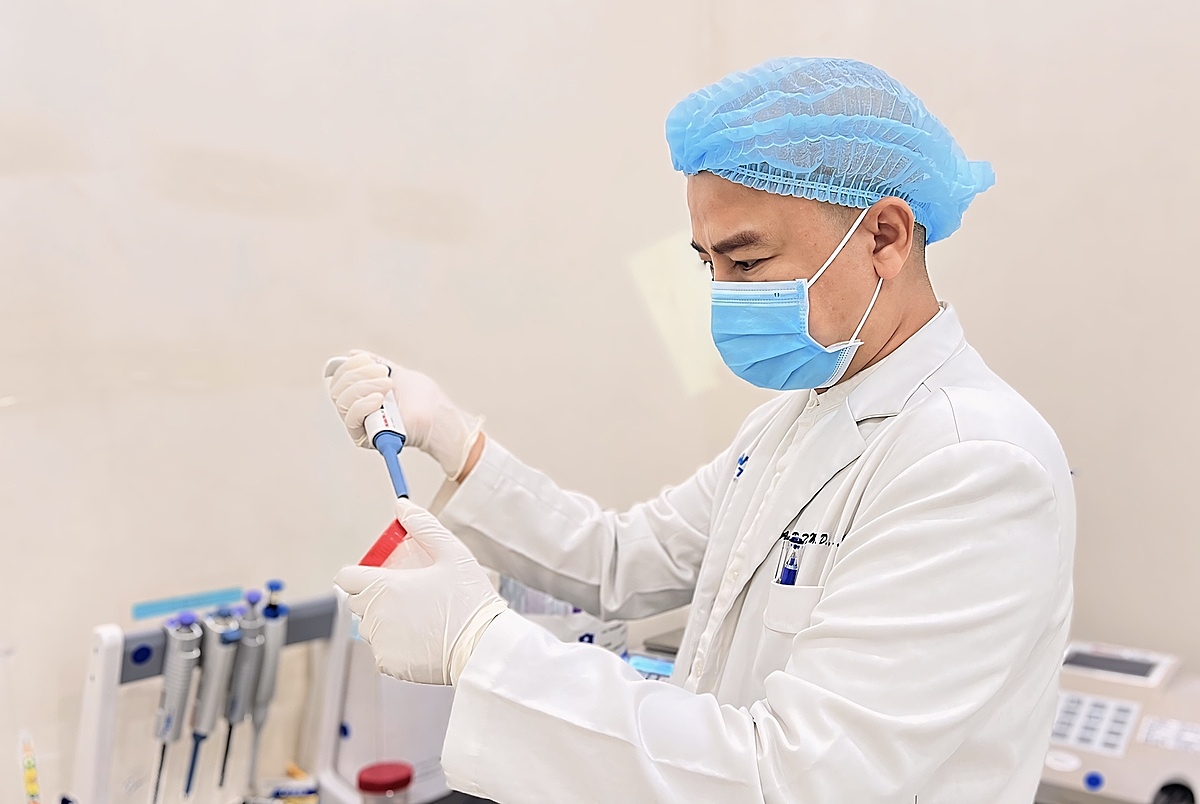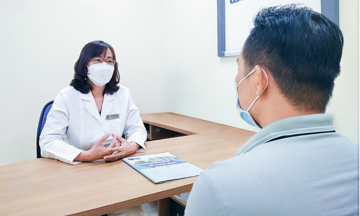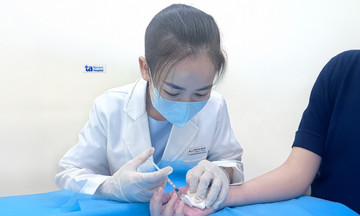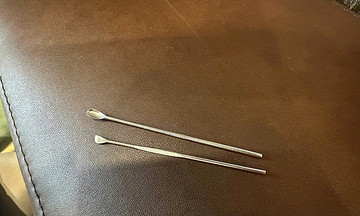Doctor Tra Anh Duy, MD, PhD, of Men’s Health, examined the patient and found a significant buildup of smegma, redness, and superficial erosions on the glans penis. A culture test confirmed a Candida albicans infection. After proper cleaning and topical antifungal treatment, the patient recovered within a week.
According to Dr. Duy, proper genital hygiene is crucial for preventing infections and sexual dysfunction. However, many men neglect or lack knowledge about proper hygiene, leading to infrequent or incorrect cleaning. This allows bacteria, fungi, dirt, and smegma to accumulate, causing various health problems.
Smegma, a mixture of dead skin cells, oil, and bacteria, often accumulates under the foreskin in uncircumcised men or those who don't clean properly. If not regularly removed, smegma creates a breeding ground for harmful bacteria, increasing the risk of genital infections and impacting reproductive health.
Research published in the International Journal of Infectious Diseases by Dinh et al. found that men with poor hygiene habits are three times more likely to develop balanitis (inflammation of the glans penis and foreskin) than those who practice regular cleaning. This condition, common in uncircumcised men, causes itching, burning, redness, and a foul-smelling white discharge, often accompanied by painful urination. Common causes include gram-negative bacteria, Candida albicans, or the parasite Trichomonas.
Poor hygiene can also lead to prostatitis, as bacteria can travel up the urethra, causing difficulty urinating, perineal pain, and ejaculatory disorders. Microscopic damage to the mucous membrane from infection creates an entry point for viruses like HPV, HIV, and Herpes. Although rare, chronic infection and prolonged smegma accumulation can increase the risk of squamous cell carcinoma of the penis.
Additionally, bacteria from smegma or dirt can enter the urethra, causing urethritis and cystitis, with symptoms including burning urination, frequent urination, cloudy urine, and lower abdominal pain. Recently, a 39-year-old man sought treatment for persistent painful urination and discomfort in the perineal area. He admitted to only "rinsing briefly" after intercourse and not cleaning under his foreskin. Tests revealed gram-negative bacteria causing urethritis. After two weeks of antibiotics and proper hygiene instruction, his condition significantly improved.
 |
A doctor takes a sample from a patient. Photo: Lam Anh |
A doctor takes a sample from a patient. Photo: Lam Anh
Doctors recommend gently retracting the foreskin during showers or urination and washing with clean water, a mild men's hygiene solution, or mild soap. Avoid harsh antibacterial soaps, as they can cause irritation. Dry thoroughly after washing to prevent moisture buildup. After intercourse, urinate and wash the genital area with clean water. Wear clean, dry, breathable underwear and change them daily.
Uncircumcised men or those with phimosis (tight foreskin) should take extra care, as they are more prone to smegma buildup. If the foreskin cannot be retracted or causes pain when retracted, consult a doctor to discuss circumcision.
Seek medical attention if you experience itching, burning, redness of the glans penis, white discharge, foul odor, unusual discharge, painful or frequent urination, cloudy urine, perineal pain, painful ejaculation, or difficulty retracting the foreskin for cleaning. Avoid using unverified topical medications or rinsing with salt water or herbal remedies without consulting a doctor.
Le Phuong












